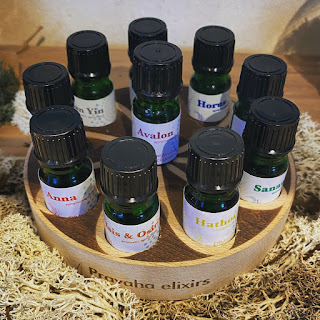Using Essential Oils for Stress Relief - Are they any beneficial
Essential oils for aromatherapy are distilled essences of aromatic plants that are used in aromatherapy and are found widely in various parts of the plant, such as flowers, twigs, leaves, bark, and in the peel of the fruit. It can also be found in rose blossoms, basil leaves, sandalwood, and other plants.
In recent years, aromatherapy has gained a lot of popularity. Aromatherapy items, once considered exotic, have now become commonplace on supermarket shelves and even in the aisles of grocery stores.
Aromatherapy candles, beauty products, essential oils, and other product lines are now widely available and have been promoted as beneficial in calming infants, reducing stress, and encouraging a healthier lifestyle.
Essential oils are used in many ways, but aromatherapy is one of the most popular today. In order to achieve the desired result, each of the organic essential oils used in aromatherapy is used separately or in combination. It is necessary to understand the effect of the oil(s) and the way in which aromatherapy works before using pure essential oils as part of aromatherapy treatment.
Aromatherapy is the beautiful practice of using essential oils to facilitate the nourishment effect of physical, mental growth, and well-being. However, the extraction techniques are time-consuming, costly, and demand a magnificent amount of knowledge. Organic essential oils are obtained through various procedures, but some are not yet used frequently.
Gas chromatography is currently the most popular form of extraction, in which steam under pressure flows through the plant material to extract the necessary oil, which is the essential oil. The steam heat allows the plant to burst with oil granules and evaporates it.
The critical oil vapor and steam are then expelled from the still's top into a water-cooled pipe, where the vapors are distilled down to liquids. The essential oil separates from the water at this stage and rises to the surface of the container. Now that should be left to the pros.
Essential oils influence our sensation immediately, often called "olfaction or olfacto therapy." When you inhale essential oils, the olfactory receptor cells are triggered, and the sensation is sent to your brain's emotional nucleus, or "limbic organ." The limbic system is interconnected to regions of the brain - associated with memory, breathing, and blood circulation, and endocrine glands that govern hormonal levels in the body. These mechanisms are stimulated by the properties of the oil, as well as by the smell and thus produces the desired effects.
When essential oils are combined with massage oils, they are not only inhaled but also ingested by the skin. They pass through the tissues and into the circulation, where they are transferred to the body's organs and functions. As essential oils usually take between 10 minutes and 1 hour at different absorption speeds, after that bathing or showering is not recommended to ensure optimum absorption or efficacy. Essential oils have various impacts on human health, including energizing, relaxing, soothing, headache relief, balancing, insomnia, and so on.
Soothing, anti-stress, mind balances, reinforcing a feeling of well-being, offering the potential to ease and stimulate the mind, calming and providing restful sleep, clearing the mind and eliminating mental confusion, relieving stress, discomfort, insomnia, and anxiety are only a few of the benefits of essential oils from Basil, Basil Holy Bergamot, Chamomile Blue, Clary Sage, Jasmine, Lavender (French), Mandarin Red, Myrrh, Palmarosa, Rosemary, Rosewood, Tangerine and Thyme.
Although no one can make any conclusive medical statements about essential oils, aromatherapy has been used for decades with striking results. Warnings should always be heeded when using essential oils since they are pure oils.
Try using essential oils to ease tension the next time your hectic routine leaves you feeling stressed.


Comments
Post a Comment